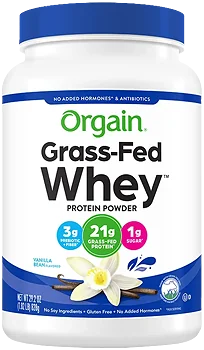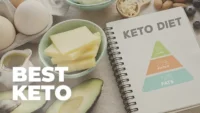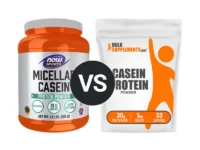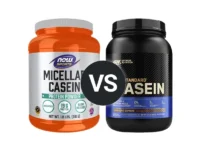Knowledge BaseYou're Questions Answered
Are slower digesting proteins like egg or casein better for keto?
For those following a ketogenic diet, which emphasizes high-fat, moderate-protein, and low-carbohydrate intake, the choice of protein can play a crucial role in maintaining ketosis. Slower-digesting proteins, such as egg or casein, can be particularly beneficial for this diet1.
Slower-digesting proteins like casein provide a steady release of amino acids into the bloodstream, which can help maintain muscle mass and prevent muscle breakdown without causing significant spikes in insulin levels. This sustained release is important for ketogenic dieters, as large insulin spikes can interfere with the state of ketosis. Casein, which is digested slowly, can provide a longer-lasting satiety, which is a valuable benefit when meal frequency is reduced on a keto diet2.
Egg protein, although slightly faster-digesting than casein, still provides a moderate digestion rate and is highly beneficial due to its complete amino acid profile. It supports muscle repair and can fit well into a ketogenic lifestyle where maintaining lean muscle is important3.
Additionally, both egg and casein proteins are low in carbohydrates, making them excellent choices for maintaining ketosis. When incorporating these proteins into a keto diet, it's important to consider the overall macronutrient distribution to ensure it aligns with ketogenic guidelines, which typically recommend keeping carbohydrate intake to about 5% of total calories, protein between 20-25%, and fat in the range of 70-75% of total calories4.
References:
- Paoli, A., Rubini, A., Volek, J. S., & Grimaldi, K. A. (2013). Beyond weight loss: a review of the therapeutic uses of very-low-carbohydrate (ketogenic) diets. European Journal of Clinical Nutrition, 67(8), 789.
- Boirie, Y., Dangin, M., Gachon, P., Vasson, M. P., Maubois, J. L., & Beaufrère, B. (1997). Slow and fast dietary proteins differently modulate postprandial protein accretion. Proceedings of the National Academy of Sciences, 94(26), 14930-14935.
- Layman, D. K. (2004). Protein quantity and quality at levels above the RDA improves adult weight loss. Journal of the American College of Nutrition, 23(6), 631S-636S.
- McDonald, L. (1998). The Ketogenic Diet: A Complete Guide for the Dieter and Practitioner. Lyle McDonald.
Related Questions
Related Reviews

Your Answer
We are a participant in the Amazon Services LLC Associates Program, an affiliate advertising program designed to provide a means for us to earn fees by linking to Amazon.com and affiliated sites.



